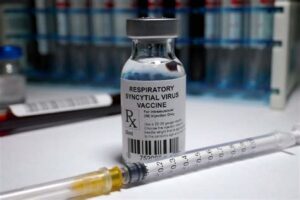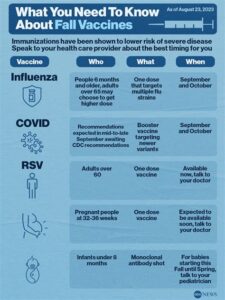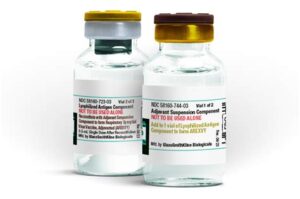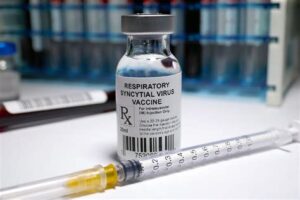Discover essential guidelines for RSV vaccine storage, including recommended temperatures, potential effects of improper storage, and best practices to maintain vaccine integrity.As the importance of vaccination grows, understanding the proper storage requirements for vaccines, such as the RSV vaccine, becomes crucial for healthcare providers and facilities. The respiratory syncytial virus (RSV) can pose serious health risks, particularly for infants and vulnerable populations, making the effective delivery of its vaccine paramount. However, the efficacy of the vaccine can be compromised if not stored correctly. This blog post will explore the key aspects of RSV vaccine storage, including the recommended temperature, the effects of improper storage, and the best practices to maintain its integrity. We’ll also discuss proper storage containers and the ideal duration for holding the vaccine, ensuring that health professionals are equipped with the essential knowledge to protect those at risk from RSV. Let’s delve into the fundamental guidelines that will help in safely managing this vital vaccine.
Recommended temperature for RSV vaccine storage
The proper storage temperature for the RSV (Respiratory Syncytial Virus) vaccine is crucial for maintaining its effectiveness. According to health guidelines, the RSV vaccine should be stored in a refrigerated environment, specifically between 2°C to 8°C (36°F to 46°F). This temperature range ensures that the vaccine remains viable and does not lose its potency.
It is essential to avoid freezing the vaccine, as temperatures below 0°C (32°F) can lead to irreversible damage. Freezing can cause the vaccine components to break down and ultimately render the vaccine ineffective. Vaccination programs must prioritize proper temperature monitoring to prevent accidental exposure to unsuitable storage conditions.
Healthcare facilities should ideally use a properly calibrated thermometer to monitor the temperature of the refrigerator housing the RSV vaccine. Regular checks should be performed, and any deviations from the recommended range should be documented and addressed immediately to ensure the integrity of the vaccine remains intact.
Effects of incorrect storage of RSV vaccine
Improper storage of the RSV vaccine can lead to significant consequences that undermine its effectiveness and safety. One of the most concerning effects is the decrease in vaccine potency, which can result from exposure to inappropriate temperatures. Vaccines are designed to be stored at specific temperatures, typically between 2°C and 8°C, to maintain their integrity. Failure to adhere to these guidelines can lead to a compromised immune response in recipients.
Additionally, storing the RSV vaccine outside of the recommended temperature range can cause physical changes to the vaccine formulation. This may include changes in the appearance, consistency, or settling of particles, which are critical indicators of the vaccine’s viability. Such changes can compromise the neutralizing antibodies that the vaccine is supposed to elicit, thus diminishing its protective effects against respiratory syncytial virus (RSV).
Moreover, incorrect storage can potentially lead to increased adverse reactions following vaccination. If the vaccine is not stored correctly, there may be heightened risks of reactions like fever, rash, or even more severe side effects. This further emphasizes the importance of ensuring that the RSV vaccine is stored according to established protocols, not only f
Proper storage containers for RSV vaccine
When it comes to the storage of the RSV vaccine, selecting the right containers is crucial for maintaining its effectiveness. The vaccine must be stored within specific temperature ranges to ensure its stability and potency. Using the appropriate storage containers can significantly impact the vaccine’s viability.
Generally, RSV vaccines should be stored in refrigerators or freezers that maintain precise temperatures. For short-term storage, vaccine carriers and coolers designed for temperature control are ideal. These specialized containers help prevent temperature fluctuations that can occur during transportation or power outages.
- Vaccine Refrigerators: These are specifically designed to keep vaccines at the recommended temperatures, usually between 2°C to 8°C (36°F to 46°F).
- Vaccine Freezers: Necessary for storing some vaccines at temperatures below -15°C (5°F).
- Insulated Coolers: Useful for temporary transport, ensuring vaccines remain within the safe temperature range.
Using the right containers not only helps in maintaining the integrity of the RSV vaccine but also complies with healthcare regulations and standards. Always ensure that containers are monitored continuously fo
Duration of RSV vaccine storage
One of the key factors in ensuring the efficacy of the RSV vaccine is adhering to the recommended duration of storage. Vaccines are sensitive biological products, and their effectiveness can be compromised if not stored properly. It is crucial to monitor and manage the storage duration meticulously to maintain their integrity.
The Centers for Disease Control and Prevention (CDC) recommends that the RSV vaccine be stored in a temperature-controlled environment. Generally, the vaccine should be stored in a refrigerator at temperatures between 2°C to 8°C (36°F to 46°F). For longer-term storage, it’s important to keep track of the expiration date and ensure it is used before this date passes. The typical shelf life is usually around 12 to 24 months, but always refer to the specific guidelines provided by the manufacturer.
To prevent any potential degradation, healthcare providers must also be trained to recognize signs of compromised vaccines. These may include temperature fluctuations or improper storage conditions. Keeping accurate records of storage duration, along with regular checks on the vaccine’s storage conditions, is essential to guarantee that the RSV vaccine administered to patients is both safe and effective.
Best practices for maintaining RSV vaccine integrity
Maintaining the integrity of the RSV vaccine is crucial to ensuring its effectiveness and safety.
- Temperature Monitoring: Regularly check the storage temperature using calibrated thermometers to ensure it remains within the recommended range. The ideal storage temperature for RSV vaccines is between 2°C to 8°C (36°F to 46°F).
- Adequate Training: Staff should be trained in proper vaccine handling and storage protocols. Understanding how to manage the cold chain is essential for the prevention of temperature excursions.
- Scheduled Inspections: Conduct routine inspections of storage equipment to identify any issues that could compromise vaccine integrity, such as power outages or equipment failures.
Additionally, it is important to maintain an inventory management system that tracks the RSV vaccines, including their expiration dates and lot numbers. This will help ensure that expired or compromised vaccines are not administered.
Utilizing appropriate storage containers that are specially designed for vaccine storage enhances their protection against temperature fluctuations and environmental conditions. Consider using validated equipment and backup power sources to mitigate risks during power failures.
By implementing these best practices, healthcare facilities can greatly improve their ability to maintain the integrity of RSV vaccines, ensuring they remain safe and effective for patient use.
Frequently Asked Questions
What are the ideal storage conditions for the RSV vaccine?
The RSV vaccine should be stored at a temperature range of 2°C to 8°C (36°F to 46°F) to maintain its efficacy.
Can the RSV vaccine be frozen?
No, the RSV vaccine should never be frozen as freezing can damage the vaccine and reduce its effectiveness.
How long can the RSV vaccine be stored before use?
The RSV vaccine can typically be stored for the duration specified by the manufacturer, usually up to the expiration date indicated on the vial.
What should be done if the RSV vaccine is exposed to improper temperatures?
If the RSV vaccine is exposed to temperatures outside of the recommended range, it should be discarded to ensure patient safety.
Are there any special handling instructions for the RSV vaccine?
Yes, the RSV vaccine should be handled with care, and any remaining doses should be properly disposed of according to guidelines.
What type of container should be used for RSV vaccine storage?
The RSV vaccine should be stored in a calibrated refrigerator specifically designed for vaccine storage to ensure that the correct temperature is maintained.
Is it important to monitor the temperature of RSV vaccine storage?
Yes, it is crucial to consistently monitor the temperature of RSV vaccine storage using a digital thermometer with an alarm function to ensure optimal conditions.





